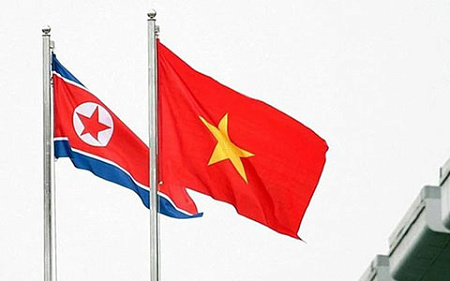
The Democratic People’s Republic of Korea (DPRK) is hosting a historic visit from Vietnamese Communist Party General Secretary To Lam, marking the first such high-level state engagement in 18 years. He arrives in Pyongyang for the 80th anniversary celebrations of the Workers’ Party of Korea, an event the reclusive state is leveraging to broaden its limited external relationships. For Vietnam, this trip underscores its increasingly bold diplomatic posture, signaling its ambition to serve as a bridge between global powers like the United States and countries that traditionally oppose Washington’s foreign policy stances. This intricate balancing act positions Hanoi as a significant player in an evolving geopolitical landscape.
General Secretary To Lam’s three-day stay in the North Korean capital holds particular weight, especially given that he received a personal invitation from Supreme Leader Kim Jong Un, as confirmed by the Korean Central News Agency (KCNA). His presence alongside other prominent international figures, including Chinese Premier Li Qiang and a Russian delegation led by Deputy Security Council Chairman Dmitry Medvedev, elevates his status as effectively the highest-ranking foreign dignitary at the festivities. For context, in Vietnam’s political hierarchy, the General Secretary of the Communist Party wields more power than the President, underscoring the strategic importance of To Lam’s visit.
While both nations share a communist ideological heritage, their bilateral relations have seen fluctuating warmth. This current visit is only the third of its kind since formal diplomatic ties were established. Earlier encounters include Vietnamese Party Chief Nong Duc Manh’s trip in October 2007, and the foundational visit of revolutionary leader Ho Chi Minh to Kim Il Sung in 1957. Subsequent reciprocal visits by the North Korean leader occurred in 1958 and 1964. However, relations cooled significantly after the Vietnam-Cambodia conflict, when Pyongyang publicly condemned Hanoi’s military intervention. A notable rekindling occurred in 2019 when Kim Jong Un traveled to Hanoi for a summit with then-US President Donald Trump, expressing a desire to deepen cooperation across various sectors before the global pandemic forced North Korea into an almost complete isolation.
Hanoi’s renewed engagement with Pyongyang is a clear indicator of Vietnam’s growing stature and evolving role on the international stage. The nation appears determined to assert itself as a crucial contributor to stability within the Asia-Pacific region, skillfully maintaining dialogue with Western allies such as the United States, while simultaneously fostering strong ties with China and Russia. Furthermore, Vietnam presents a compelling model for economic transformation, potentially serving as a mentor for North Korea should Kim Jong Un opt to pursue similar reforms.
Vietnam’s “Doi Moi” reforms, initiated in the late 1980s, spearheaded a transition from a centrally planned economy to a market-oriented system, all while retaining the Communist Party’s political authority. This successful model has garnered interest from Pyongyang, with North Korean officials having visited Vietnam in 2018-2019 to study the country’s economic experience firsthand, highlighting the potential for a knowledge exchange that could influence the DPRK’s future trajectory.
Beyond economic mentorship, Hanoi is also strategically positioning itself as a potential facilitator for inter-Korean dialogue. This ambition was subtly signaled by To Lam’s recent visit to Seoul in August, where he became the first foreign leader received by South Korean President Lee Jae-myung following his election. The very fact that Kim Jong Un extended an invitation to To Lam suggests that Pyongyang may not be entirely averse to Vietnam playing such a mediatory role between the estranged Korean states.
This landmark visit transcends mere bilateral diplomacy, reflecting not only Hanoi’s increasing geopolitical ambition but also nuanced shifts in Pyongyang’s external policy. After years of self-imposed isolation exacerbated by international sanctions and the COVID-19 pandemic, North Korea appears to be cautiously re-engaging with the global community. Kim Jong Un’s presence at a significant Chinese military parade in September further underscores this gradual, if limited, re-opening to international interactions.
Nevertheless, the scope of North Korea’s expanded foreign engagements remains inherently constrained. Persistent international sanctions severely restrict its trade and economic interactions, often relegating official bilateral relations to a largely symbolic status. Crucially, the DPRK leadership continues to regard its nuclear weapons program as an indispensable guarantee of national security, a stance that precludes any immediate prospect of UN sanctions being eased or lifted. This enduring reality will inevitably dictate the boundaries of its re-integration into the international system.
